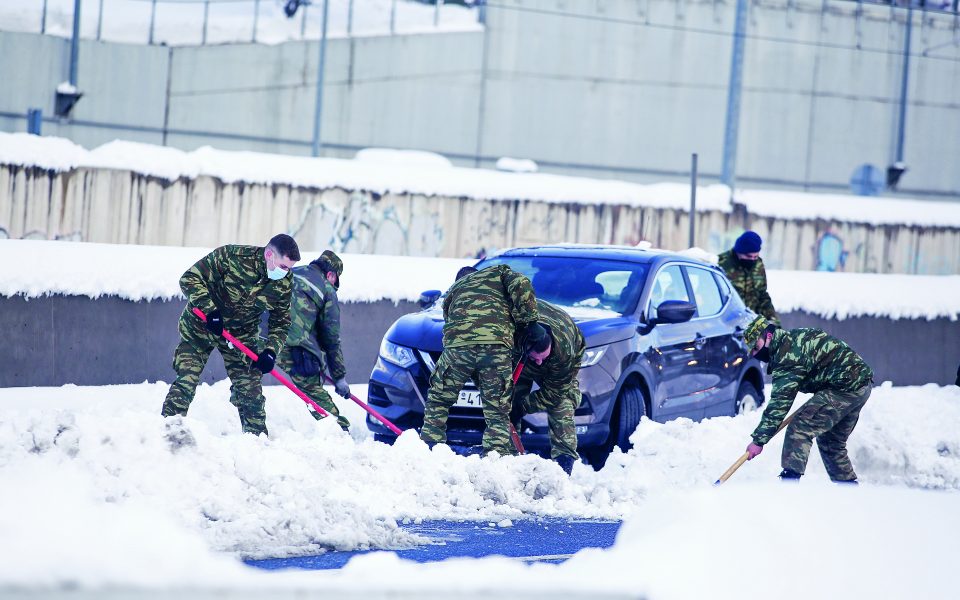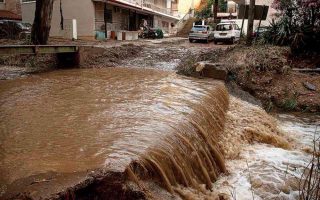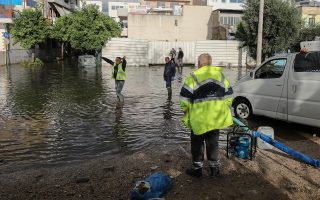With what state, what revenues?

We have a state that usually manages to function when the sun is shining and there is good weather, but not when it’s too hot, too dry, too windy, too snowy or too wet. When there is a major weather event, it enters a state of paralysis. Whatever it had been (supposedly) planning collapses the moment it is needed.
During last year’s snowstorm, the state could not decide precisely who should have pruned the trees – and much of the region of Attica was left without electricity for days. In the summer, it turned out that authorities had forgotten to open forest roads, create firebreaks and clear forests of deadwood and dry undergrowth as a precaution, and in the heatwave we witnessed an unprecedented national catastrophe. Most recently, state authorities failed in the middle of Athens in another snowstorm. The state is complacent because it was and remains partisan and enjoys the luxury of laxity.
It is not the only one to blame. Similar issues characterize significant sections of the business world in Greece. The private sector is not immune to these problems. There are businesses that have secured – rain or shine – their revenues through contracts with the state, without the anxiety that they might not survive if they do not meet their obligations, without the agony of real competition – whether it is roads that should be open, or reliable communication services, or electricity distribution. Whether the company owner is Greek, Dutch, German or Australian also doesn’t seem to affect these attitudes. But the tone and the context is set by the state.
Snowstorm Elpis came to remind us that there is no hope. Modern development presupposes a state that can plan for tomorrow, is able to run big projects, dares to take risks and experiment prudently and without fear, organizing alliances and cooperating with the private sector and society. In other words, a state that functions as a capable general. And the climate crisis – which will be present for the next three to four decades even if greenhouse emissions are completely stopped – is making once-rare extreme weather phenomena more common and mutually reinforcing.
Therefore, what is required is long-term and studied planning, a new type of organization of the state from the top to the local level, preventive actions, professionalism and discipline and immediate action in times of crisis – everything that the Greek state currently does not have.
Greece’s major challenge is the revamping of the state. So far we have not touched on it. The positive steps made with the use of digital technology relieve citizens of some bureaucracy but have not restructured the state so that it can play its strategic role. These steps have mostly had to do with solving technical problems but they do not touch on the deep political problem – which presupposes major conflicts with multiple conservative systems of power.
A related problem that the political system (among others) does not want to touch upon is the following: In order to do what needs to be done and start building a new type of state that meets modern requirements, we need money. This money will require sound management, with respect for the taxpayer’s every euro, but it is definitely needed.
Does anyone take this into account when planning how the EU recovery fund money will be spent or when planning fiscal policy, or when they distribute handouts to everyone, regardless of whether they need it or not?





